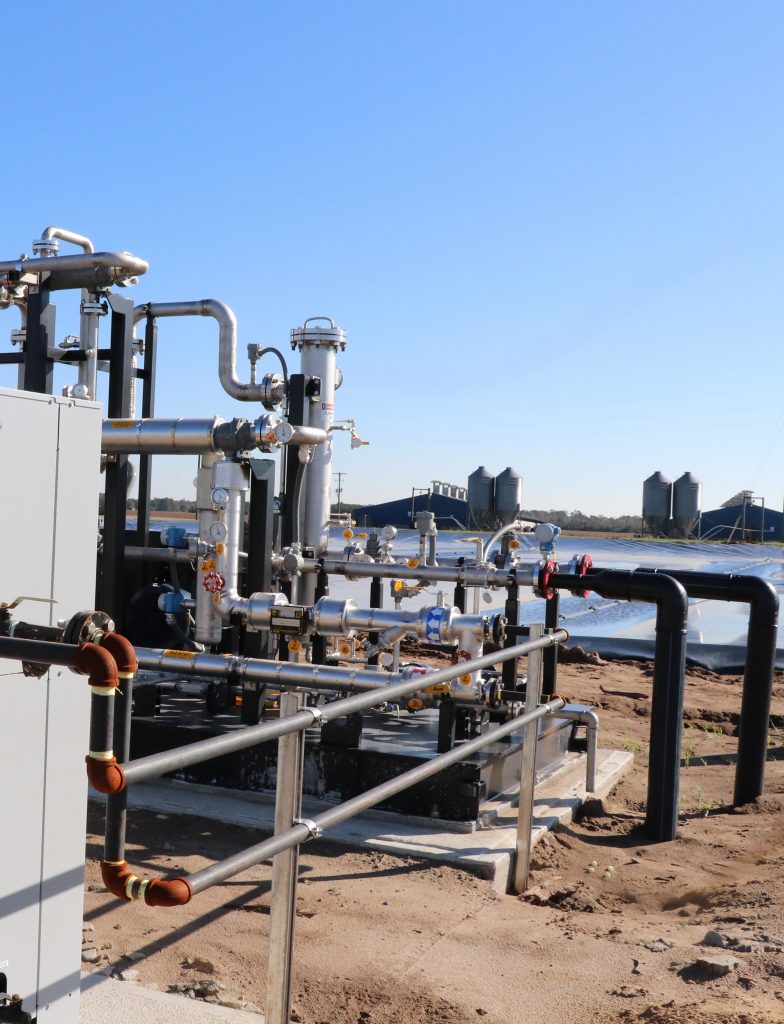
North Carolina’s hog farmers continuously seek ways to improve, including the recent addition of anaerobic digesters on five Duplin County farms that capture methane gas to be injected into the natural gas pipeline.
One way the Texas lawyer bringing the nuisance lawsuit has tried to turn facts upside down is by arguing, over and over, that the pork industry in North Carolina is stuck in its ways. Farmers use the same system they always have, he argues, and only the jury can make them change.
Some people will say anything. It’s unfortunate that a receptive and unquestioning media swallows it whole and amplifies this false claim.
The Texas lawyer has zeroed in on covering lagoons and using technology called “solid separation” as the magic wands to resolve his claims of objectionable odor from the farms.
Let’s take a look.
First, there is no credible evidence of objectionable odor from the Joey Carter Farm, which is out on Hallsville Road just west of Beulaville.
That’s the farm on trial.
Second, the actual testimony shows that covering a lagoon does not have a significant impact on odor, and that it instead can push that odor from the lagoon out to where it is applied as a fertilizer on a crop.
Third, the solid separation technology does reduce odor slightly at times – on the farm. Slightly, as in from a measure of 1.9 to 1.7 at some times of the day, though it’s not true always. Even so, that process then requires trucking of the dried manure to apply it as fertilizer somewhere else.
Fourth, overlooked in this line of questioning is that Joey Carter has indeed added new technologies – in fact, he had a solid separation system on his farm in the 1990s (it failed to succeed). He added a “rolling bar” application system a dozen years ago. He added a low-pressure center pivot in the past few years.
His neighbors closest to the farm say it’s pretty simple: The farm doesn’t smell.
And so the Texas lawyer has had to pull back and try to paint a broad brush on the entire industry, alleging it is stuck in 1989.
If only.
So, let’s be clear. North Carolina pig farmers believe in their ethical obligation to manage manure responsibly – and to care for their communities, neighbors and animals.
In North Carolina, the manure is treated in the lagoon and applied as an organic fertilizer on a green and growing crop, all under rules and regulations that specify how, when, where and what takes place.
Farmers in North Carolina take seriously their responsibilities while producing the safest food in the world. That means constant, continuous improvement.
That’s what farmers do: They know they are stewards of their land, with plans for generations to come, like those before, to continue to produce food for people.
There has been testimony in the trial about something most people don’t think much about: Feed conversion.
That is, what the pig eats and converts into meat has a direct effect on what ends up in the lagoon. There have been great strides in this area, which has effects on grain needs but also on manure management and odor.
Feed conversion used to require about 4 pounds of feed to add 1 pound to the pig. Now, it’s closer to 2.5 pounds of feed for 1 pound of pig. There is no government regulation – or other magic wand – with a bigger on-farm improvement than that kind of progress on feed conversion, which is the result of animal care and diet management.
Your eyes might be glazing over right now.
Perhaps you are looking to skip ahead to the end.
Stop.
It’s down in the technical weeds – in areas like feed conversion – where real progress is continuous.
But that’s not all.
There’s one farm that has tried a plastic bead to encourage algae growth through a series of tanks by the lagoon. But the pipes keep breaking.
There’s a farm with an “aerobic blanket,” but it’s been difficult to keep running.
There are things called “Blue Frog aerators,” and “sequencing batch reactors” and “permeable covers” and on and on.
The amount of innovation in the North Carolina pork industry is something our leaders in communities and across the state should celebrate, despite the attempts to twist facts by an out-of-state lawyer.
In North Carolina, one of our companies, Smithfield Foods, spent $60 million in today’s dollars funding deep research into on-farm waste technology. It was part of an agreement with the state to take a sustained look at alternative technologies. Nothing was found to be adaptable to the farms under that project.
But, make no mistake, that work continues.
One of the technologies that looks promising is an anaerobic digester that captures biogas and puts it into the pipeline.
An executive from Smithfield was asked about spending on similar research efforts since then.
The answer: Well more than $150 million to $200 million.
The executive was asked: Do you think, taking into account all of the lessons that have been learned, there will still be lagoons?
The Texas lawyer jumped in and objected to letting the jury hear any answer to that question.
And the judge agreed.
Here’s hoping the jury was tuned in.
– Andy Curliss, CEO
